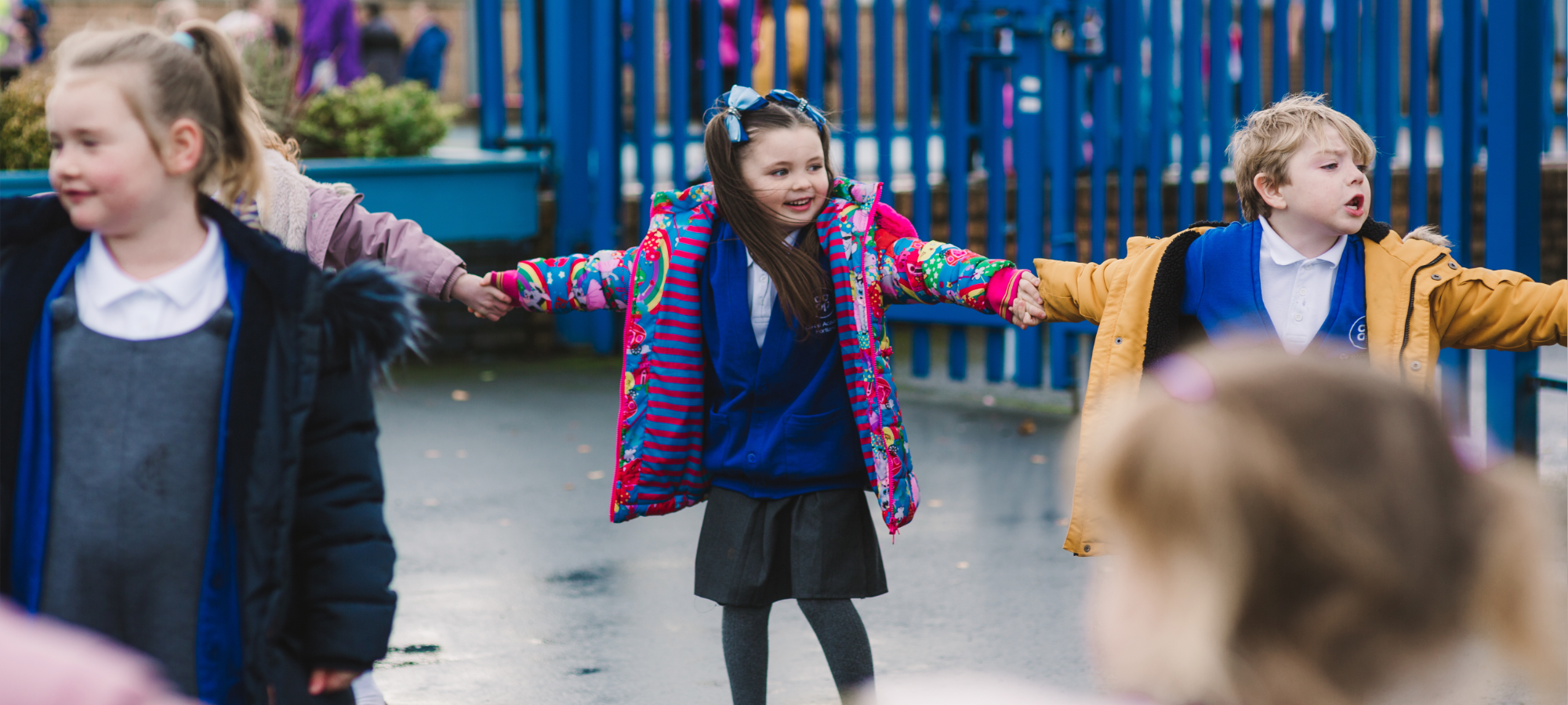Spanish
The 2014 National Curriculum for Modern Foreign Languages aims to ensure that all children:
- Understand and respond to spoken and written language from a variety of authentic sources.
- Are able to speak with increasing confidence, fluency, and spontaneity, finding ways of communicating what they want to say, including through discussion and asking questions, and that they are continually improving the accuracy of their pronunciation and intonation.
- Can write at varying lengths, for different purposes and audiences, using the variety of grammatical structures that they have learned.
- Discover and develop an appreciation of a range of writing in the language studied.

A high-quality languages education should foster children’s curiosity and deepen their understanding of the world.
At Co-op Academy Portland we are committed to ensuring that competence in another language enables children to interpret, create and exchange meaning within and across cultures. It also helps children develop skills that will open further opportunities later in life. Our aim is that knowledge of a new language will inspire the children to travel, be open-minded, and be curious about the world away from their neighbourhood. The teaching of Spanish in KS2 provides an appropriate balance of spoken and written language and lays the foundations for further foreign language teaching at KS3.
Implementation
Children are introduced to Spanish in year 3 and receive a weekly 30 minute lesson, throughout their time in KS2. This enables the children to develop language acquisition skills that facilitate their understanding of the patterns of language and how these differ from, or are similar to, English. Lessons across the Key Stages support the skills of speaking, listening, reading and writing:
Children are taught to listen attentively to spoken language and respond, joining in with songs, rhymes and games.
Children develop an appreciation of a variety of stories, songs, poems and rhymes in Spanish that are delivered through the curriculum content.
For full details see the long term plan. Where possible, the teaching is linked to other topics, eg; in year 5 geography, children study Europe, and in Spanish they will be learning about how to describe a holiday. Otherwise the teaching and learning is more progressive, going from simple vocabulary in year 3 to abstract responses to films and other stimulate in year 6.
A well planned and meaningful Spanish Day allows children to enhance their learning of the language by helping them to experience the cuture of Spain and Spanish speaking countries. It will also provide an opportunity to create cross curricular links, eg; graphs of temperatures or rainfall (Maths), a persuasive write to visit Spain (English), Cooking Spanish food (DT), a study of Picasso (Art) etc.
Impact
We aim for our children to develop a love of Spanish and Spanish culture. They should become confident in speaking conversational Spanish, and as they get older, be able to write short passages of description in Spanish. An appreciation of Hispanic culture should ensure that they become open-minded about the wider community and the world beyond.

The lead teacher for this subject is Miss Charlesworth, supported by Mr Ogilvie, our Curriculum Team.
